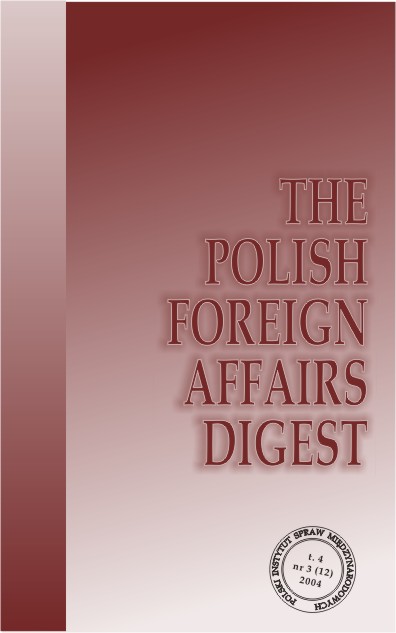

Keywords: former communist countries; boundaries; political correctness; European identities; Iron Curtain; Central or Eastern Europe; geographical regions
“Re-enter Europe” is not a customs sign but a metaphor, which quickly became a commonplace, referring to the former communist countries as though, before the fall of the Iron Curtain, these states had been removed or far away from the continent. At the same time when, during the mid 1990s, this expression was en vogue, there were geographical, political and cultural debates about whether the former communist territories belong to Central or Eastern Europe, and on whether Russia or Turkey, which have territories in Europe, had ever been European. Based on evidences, it can be asserted that no discipline can offer un-debatable methods for delimitating Europe’s regions or a commonly accepted manner for defining regions in general. The only certitude seems to be the fact that all regions, including geographical ones, have invented boundaries and some are designated through names with a certain past, usually employed by the political projects that refers to regions. Therefore, in order to understand the current political projects (even when they try to be as politically correct as possible), it is more than necessary to understand first the history of the names employed and their connotations. Unfortunately, most social scientists ignore or are just partially aware of the importance of these background researches dismissing them as pure and unnecessary erudition.
More...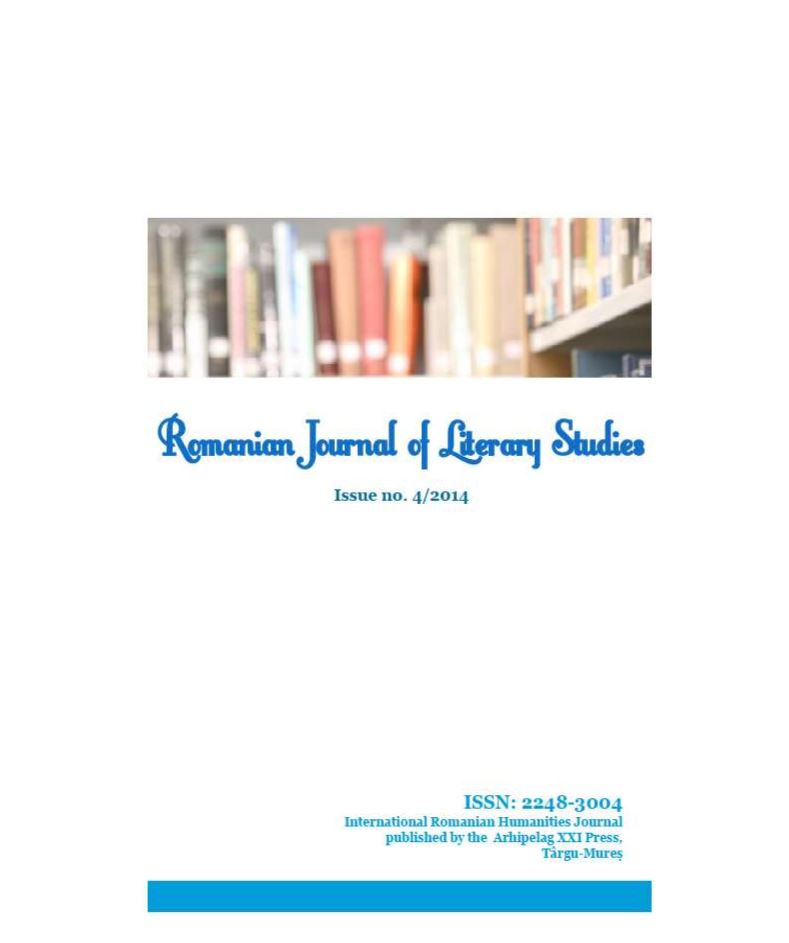
Keywords: history; diplomat writers; spirituality; esoteric culture; philosophy
The phrase “cultural diplomacy” is also described as a process of projection/thrust to the outside of the system of autochthon cultural values designed to exercise decisive influences on the cryptic/prophetic orientation within the spheres of foreign policies. By invoking political diplomacy, the role of “political ritual” is also called into question, a ceremonial practice that “displays and promotes the power of political institutions or the political interests of certain actors of social groups”. Dimitrie Cantemir is the prototype of the man who left at the beginning of the eighteenth century, in the volume „Monarchiarum physica examinatio” (1714), the only theoretical-diplomatic writing. It comprises the image of the scholar, the humanist, but also of the lord of Moldavia “wisely” dedicated to the artistic creation (literary, musical, etc.) and to the scientific research, concerned about the logics, metaphysics and philosophy of the great Jan Baptist van Helmont. Our first linguist and dialectologist, the first Romanian scholar who tried to create a scientific, philosophic and political-diplomatic terminology for our language, raising the Romanian language to the rank of the other literary languages of that time in Europe, the following works are added: “Metaphysics” (1700), “The image of the sacred science”, “About consciousness” and “The divan or quarrel of the wise man to the world or the soul’s spear with the body” (1698), Romanian philosophical paper in which reflections are embroidered on the notions of time, soul, nature, consciousness. One of the most important writings of Dimitrie Cantemir for the Romanian culture, which, through “its pedantry character”, also included in the category of “diplomatic literature” remains “Hronicul vechimei a romano-moldo-vlahilor” – “The Chronicle of the history of Romanians-Moldavians-Vlachs”, to which we add “Istoria ieroglifică în douăsprezece părţi împărţită” – “The hieroglyphic history divided in twelve parts” (1704-1705), a sort of “secret history”, “political allegory”, in which Cantemir shows interest for esoteric and obscurity, a “hermetic character” in language and an esoteric in the old signs of Arabic-Persian culture.
More...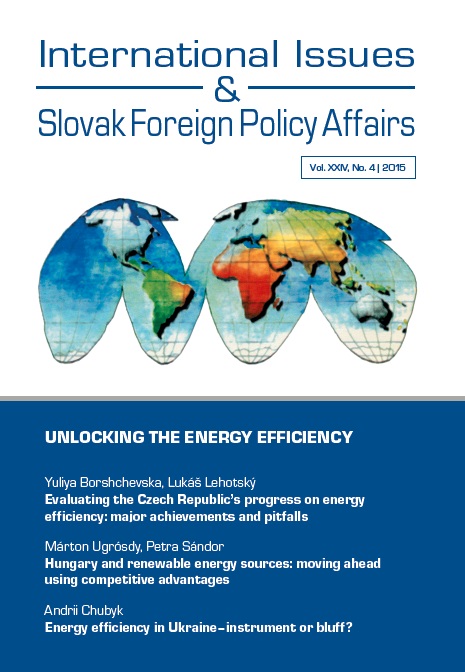
Keywords: review;
A book review of the title: By Samuel Goda, ed., Bratislava: Research Center of the Slovak Foreign Policy Association (Studies on international relations a10), 2015, 68 p., ISBN 978-80-968155-8-6
More...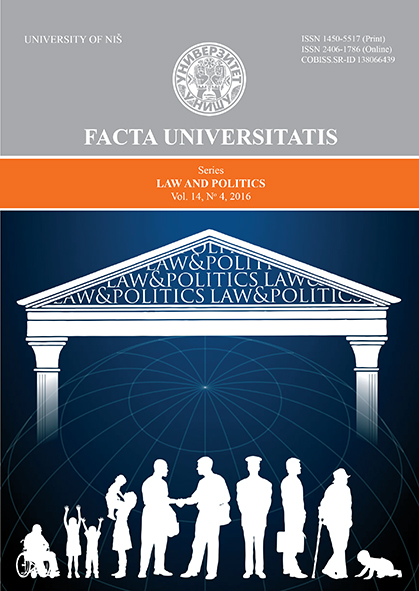
Keywords: ICSID; International Investment Court; annulment; appeal; legitimacy
International Centre for Settlement of Investment Disputes (ICSID) has been set as an authoritative forum for investment dispute resolution. But lately it’s been perceived as dealing with legitimacy crisis. At the same time, within the framework of TTIP negotiations, the European Commission has proposed the formation of International Investment Court. It is still uncertain whether this proposal is going to be adopted and implemented, but among its anticipated effects is the replacement of investor-to-state dispute settlement system, which is reflected in ICSID. This paper explores the uniqueness of ICSID by focusing on a particular part of procedure: the annulment. The analysis demonstrates that the annulment procedure raises significant legal and political issues, which have the potential to undermine social legitimacy of the system as a whole. The aim of this paper is to look into the possibility to place the International Investment Court as a mode to overcome those issues, both legal and political ones.
More...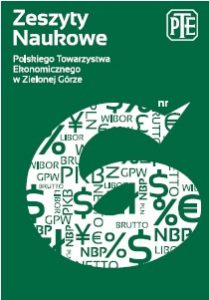
Keywords: sustainable development; social sector; private-public partnership;
The aim of the article is to analyse changes in the relationship between business and the state and their new mission - sustainable development. The authors believe that these questions should be included in research explorations as they see more and more problems with globalization, the financial crisis, and the lack of a new role for business and the state in the social sphere and the definition of the spheres of influence of various market factors. The methods of analysis, comparison and an interdisciplinary approach were all applied. The article discusses the problems of a new social phenomenon: “market - the state - business”,the authors’ views on the contemporary role of each institution, their interaction in the process of ensuring sustainable development. Particular attention is paid to the new role of business in the social sphere. The authors argue that a new interpretation of the present role of the state is needed in order to secure sustainable development.
More...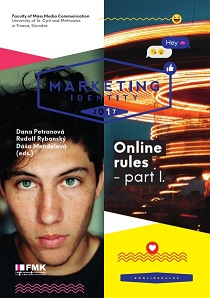
Keywords: Client; Communication; On-line; Perceived waiting time;
Communication (especially marketing communication) is a job that should be done in the work time. Meanwhile, through modern client-to-business communication tools, the customer influences the organization’s pattern of behavior by requesting immediate information. If a client has to wait for an answer, he may even reject the transaction. Organizations, in turn, tend to use tools to reduce the perceived waiting time. For the purpose of the article, three theses have been put forward: The client requests an extension of communication hours with the organization. The client does not want to feel that he is waiting for an answer from the company. Organizations work on reducing the perceived waiting time. An overload of communication, information, and news seems to be a common perception nowadays. The information society operates “under a more-faster-better philosophy of life”. Probably, to defend themselves from wasting time, people have to value this resource and allocate it in a considered, thoughtful manner to the things they appreciate.
More...Keywords: media convergence; Internet television; GSM television; globalization;
This research presents, in a condensed manner, the evolution of mass media over the past ten years, as a direct result of the rise of digital technologies. These influences can be easily noticed, are highly visible and are exerted in three directions: content-wise, management-wise and business-wise. One can say, metaphorically, that the traditional media moguls are being replaced by Internet moguls. Another consequence of the rise of digital technologies is the convergence of communication means, obvious in our daily lives. Finally, the Internet can also be regarded as a creativity – inhibitor. The „copy-paste” phenomenon has become so widespread that it made elements of originality so much harder to identify. The „copy paste” phenomenon also has another side, as shown by the case of dr. Jekill and Mr. Hyde: people are, without any trace of doubt, living in an ever more informed world.
More...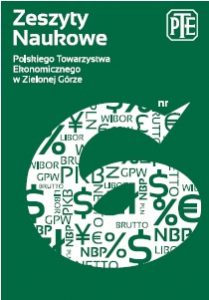
Keywords: sustainable development; social sector; private-public partnership
The aim of the article is to analyse changes in the relationship between business and the state and their new mission - sustainable development. The authors believe that these questions should be included in research explorations as they see more and more problems with globalisation, the financial crisis, and the lack of a new role for business and the state in the social sphere and the definition of the spheres of influence of various market factors. The methods of analysis, comparison and an interdisciplinary approach were all applied. The article discusses the problems of a new social phenomenon: “market - the state - business”, the authors’ views on the contemporary role of each institution, their interaction in the process of ensuring sustainable development. Particular attention is paid to the new role of business in the social sphere. The authors argue that a new interpretation of the present role of the state is needed in order to secure sustainable development.
More...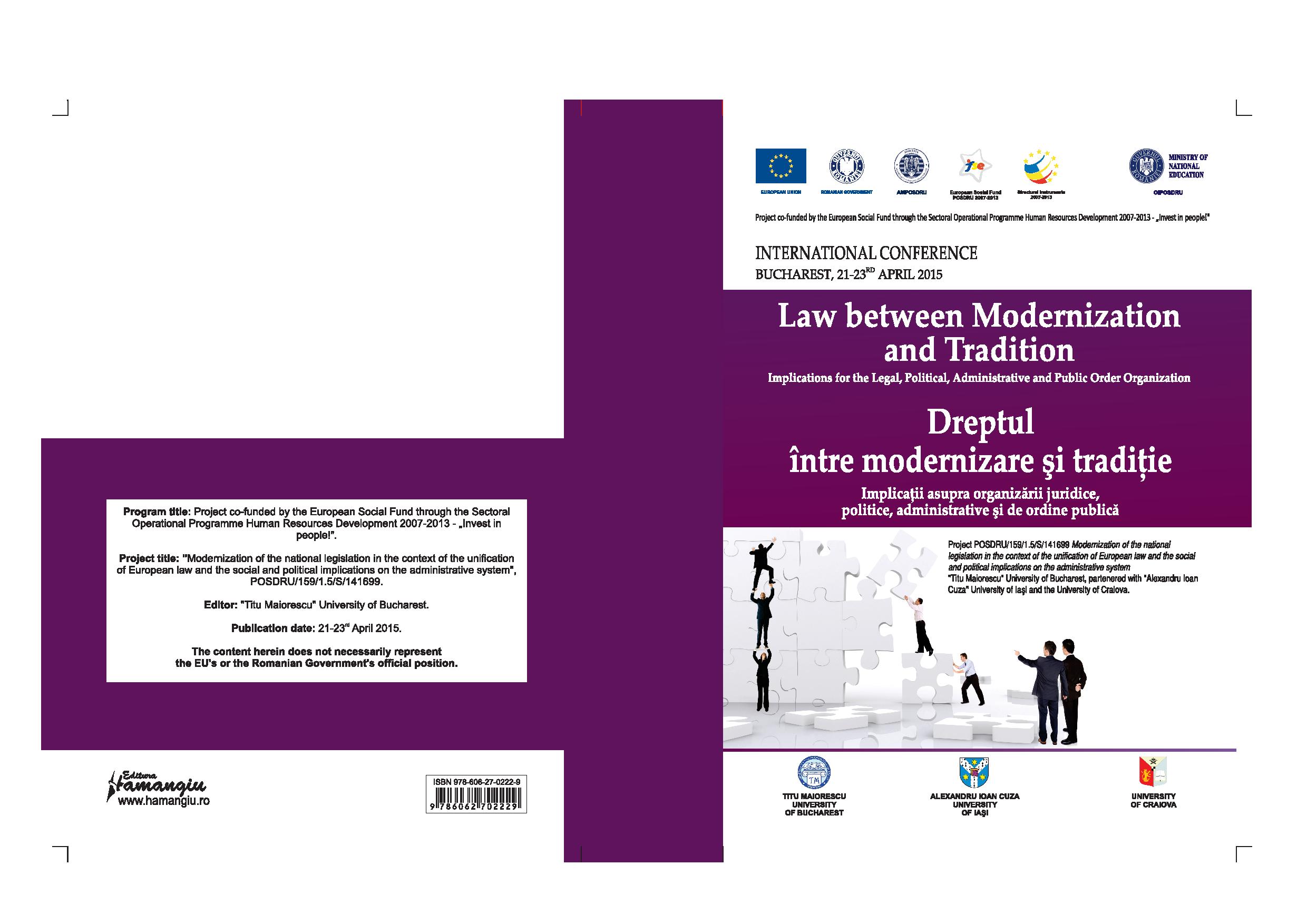
Keywords: democracy; national security; strategy;
Though the concept of ”national security” has become one of most the most invoked terms in recent Romanian public discourse, there is yet to be achieved little consensus on its complexity of meaning or field of application. Law no 51/1991 on national security is obsolete and in spite of various initiatives aimed at replacing it with a more modern version in touch with the spirit of the age and Romania’s European and international security commitments little progress has been achieved. Since 1991 the national security legal framework has been enriched with other pieces of legislature, giving rise to a complex and chaotic patchwork of measures where even experts find themselves lost.Furthermore, though boasting with having a National Security and a National Defence Strategy, Romania has encountered significant problems both in elaborating such strategic documents and moreover in getting them validated by the Parliament. The lack of a strategy, acknowledged and accepted by all political actors has been an obstacle in the execution of much needed reforms in the national security sector.The goal of this paper is to explore the problems posed by having such an obsolete legal framework regulating the field of national security, while on the other hand trying to study the reasons why Romania needs to devise and adopt a new National Security Strategy.
More...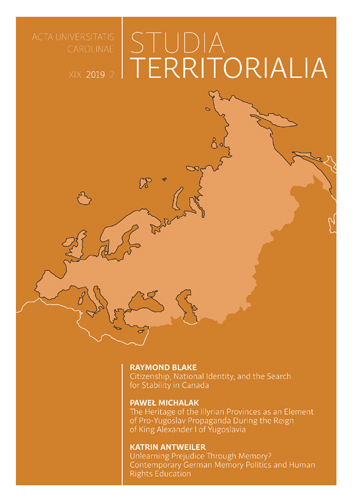
Keywords: Canada; diversity; citizenship; nation-building; George-Étienne Cartier; Justin Trudeau
When Canada was created it debated if it was best to seek political solidarity by creating a single political identity or was it wiser to build a citizenship that made space for all communities. This article argues there was no attempt to unite Canadians around a single national loyalty but only to join an array of diverse communities whose members might adopt a shared citizenship. Since 1867, Canada has adopted different approaches to creating citizenship to maintain political solidarity. Diversity has been an integral part of that narrative.
More...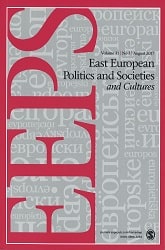
Keywords: East Central Europe; Marxist-Leninist parties; Soviet President Mikhail Gorbachev; reforms; Soviet Union; Communist parties; system transformation; socialism;
The largely peaceful abdication of monopoly power by ruling Marxist-Leninist parties throughout East Central Europe was one of the most spectacular and unexpected contributions to the annus mirabilis-1989. There was simply no precedent for this. No one who had studied Marxist-Leninist parties predicted it; the changes encouraged in the region by former Soviet President Mikhail Gorbachev, notwithstanding. The factors contributing to the system's demise are well known : among them, deteriorating economic conditions; the unwillingness of the Soviet Union to sustain Communist party rule in the bloc with force; and the disorientation that accompanied Gorbachev's reforms. Taken together, one might argue that loss of power had become merely a question of time; but Communist parties had more than sufficient domestic military and security force at their disposal to quell opposition demonstrations. In the past they had not hesitated to use it when confronted with equally challenging circumstances. [...]
More...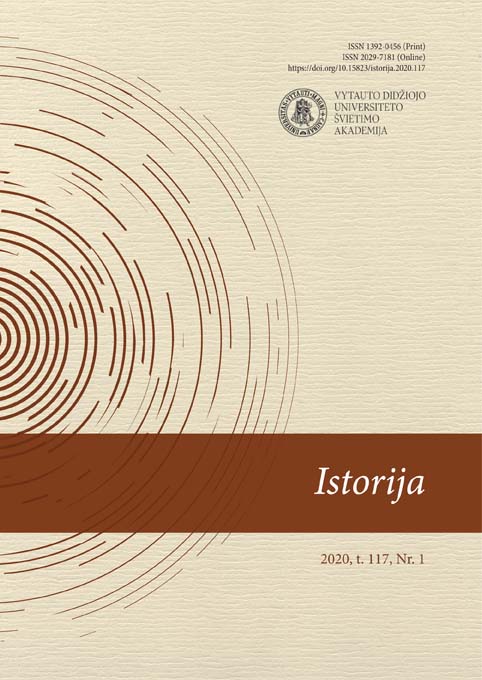
Keywords: Ambassador; Washington; Stasys Lozoraitis (Jr); Vytautas Čekanauskas; Algirdas M. Brazauskas; Kazys Bobelis; Presidential elections; US Lithuanian expatriates;
Based on archival documents and press information, an attempt is being made to find out whether in 1993 the DLPL government and President Algirdas M. Brazauskas legally recalled Ambassador Stasys Lozoraitis (Junior) from Washington and transferred him to a similar position in Rome. An attempt is made to evaluate the selected candidate for the Honorary Consul General of Lithuania in Los Angeles, Vytautas Čekanauskas, to temporarily lead the Lithuanian diplomatic mission in Washington. Although some Lithuanians in the United States supported Čekanauskas’ candidacy, there was an outcry that Lozoraitis had been illegally withdrawn from the United States and treated with disrespect; Čekanauskas refused the proposed post. This may have been influenced by the vague prospects offered to him by the Lithuanian authorities, as there was no clear talk about the post of ambassador. At the same time, the governments of Latvia and Estonia appointed Latvian and Estonian representatives in the United States as their ambassadors in Washington.
More...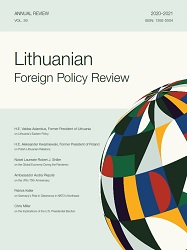
Keywords: Hybrid threats; hybrid warfare; strategies for countering hybrid threats; security; 4th generation warfare;
The sceptic camp argues that the concepts ‘Hybrid warfare’ and ‘Hybrid threats’ are too broad or vague, or just new buzz words for an old phenomena with an existing conceptualisation (‘grey zone’, sub-threshold activities, 4th generation warfare). While most of the scepticism addresses the shaky foundations of the concept, Hybrid methods have played an important role in the policy world. It is also important to move beyond reactive/responsive strategies for countering Hybrid threats that are mainly based on resilience-building. A growing body of research provides valuable insights on how to develop a more strategic approach to deal with Hybrid activities.
More...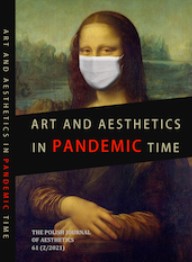
Keywords: Philosophy, Rhythm; Territory; Horizon; Husserl; Deleuze; Guattari;
During the pandemic situation while the usual order changes and the search for new elements of security become more active, rhythm studies may provide a deeper understanding of human and ongoing processes. The current study views rhythm as a force of stability in the context of Husserl’s and Deleuze & Guattari’s philosophies. It seeks common substantiation for sociality, humanity, art, and nature, showing the organic connection between a person’s internal constitution and outer environment, the rhythmic centre’s manifestations, and surroundings.
More...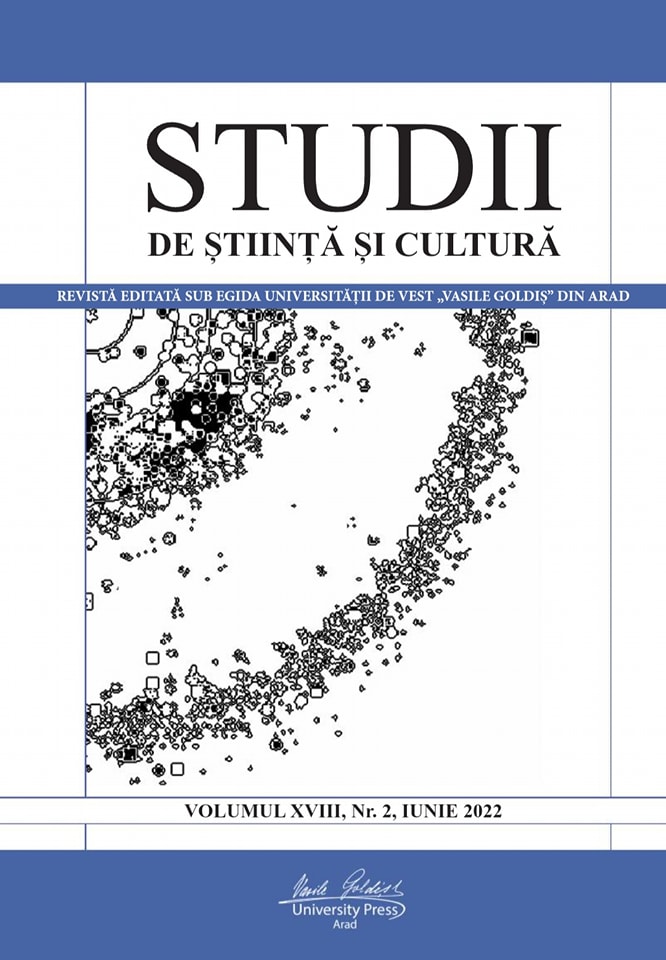
Keywords: Japanese calligraphy; shodō; hiragana; katakana, kanji;
Japanese calligraphy is a complex practice, which constantly evolved from its first years to the present day, becoming a multifaceted art through which calligraphers can freely express their vision. Although at the beginning Japanese calligraphy was mostly influenced by the Chinese masters, over time it started reflecting Japanese culture and mentality. Our article will focus on the way calligraphy evolved in Japan, finding a unique, Japanese style, that sets it apart from other types of calligraphy. In order to reflect this evolution, we will analyse two calligraphic works, created by the Romanian calligrapher Rodica Frențiu. Results show that nowadays shodō uses modern representation techniques while remaining deeply rooted in tradition.
More...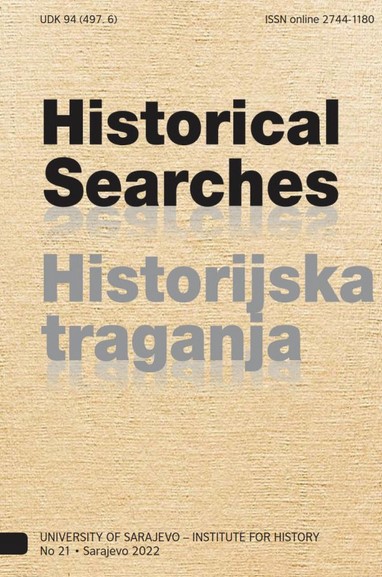
Keywords: Valentina Šoštarić; Republic of Ragusa; 14th-15th centuries; Political history; diplomatic history;
Review of: Valentina Šoštarić, Dubrovački poklisari: u potrazi za novim teritorijima [Ragusan Envoys: in Search of New Territories], Zadar: University of Zadar, 2021, 287 p.
More...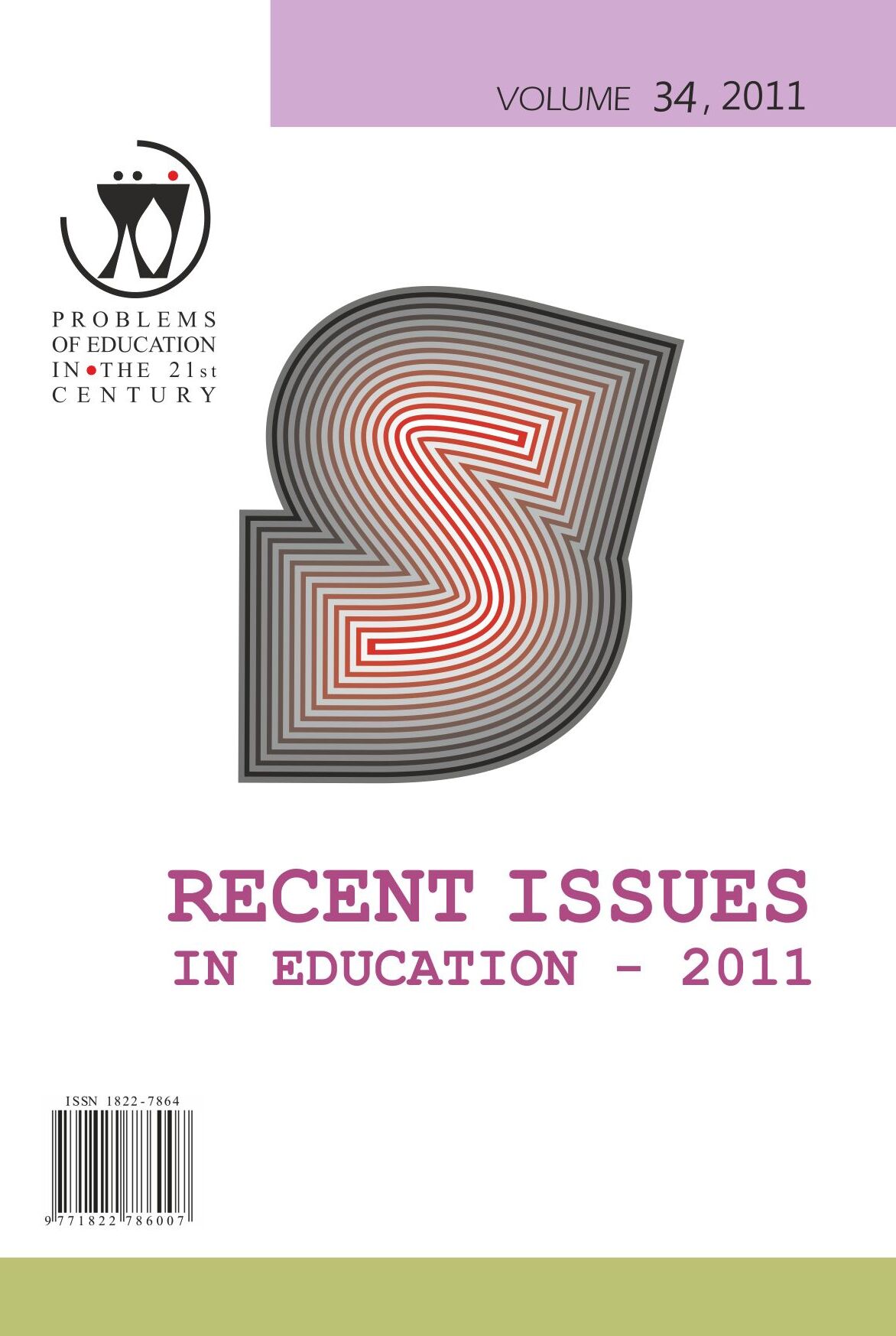
Keywords: higher education; pseudo-education; fundamental education;
The pace of life forces us in getting everything quickly and preferably for free, i.e. the faster – the better. No matter that fast food from McDonald’s simply kills the human organism. The crucial point is that the action itself is fast and cheap. However, I see no sense in discussing the topic of junk food. A better idea is the transformation of the above introduced term into the field of education and debates on “appetite” for learning rather than for fast food. Thus, what are the shown indications? First, it should be noticed that when considering the phenomenon of “fast” training, education fails to retain its purpose, and therefore the systems of comprehensive and higher education appear to be just a blur (Lamanauskas, 2011).
More...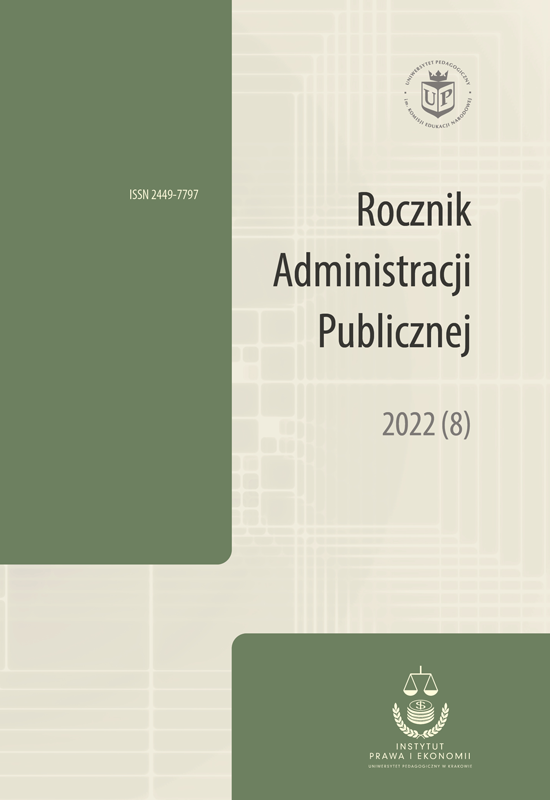
Keywords: Economic Diplomacy; Shi¢ of Economic Power; Energy Security; Economic Sanctions; Human Rights
Current challenges of economic diplomacy make even more urgent the need for strong human rights legislation, involving not only democratically elected governments but also non-state actors such as civil society, local authorities (mega cities outnumber many countries), businesses, and universities. The paper focuses on three problems of the delicate relationship of economic diplomacy with the protection of human rights:– the new shift in economic and commercial power from the Northwestern developed countries to Southeastern emerging economies with serious deficits in the functioning of democratic institutions, but with a rapidly emerging middle class, with serious ambitions for change (in a positive or negative direction),– the “energy security”, as the Russian military intervention in Ukraine, revealed,– and economic sanctions, since poor design and implementation of sanctions policies often mean that they fall short of their desired effects, endangering human rights.How, then, could the exercise of modern economic diplomacy (promoting exports and investment abroad, attracting FDIs, aid and trade negotiations, but also strengthening the functioning of other civil society actors), not only helps protect human rights but also be an opportunity for high strategic scope and great social value? Applying human rights’ evaluation criteria of economic diplomacy, with the help of policy experience and technology, should concern societies in democracies. The research results can be taken into consideration by policymakers to create an appropriate economic diplomacy framework shaped by European democratic values and respect for human rights.
More...